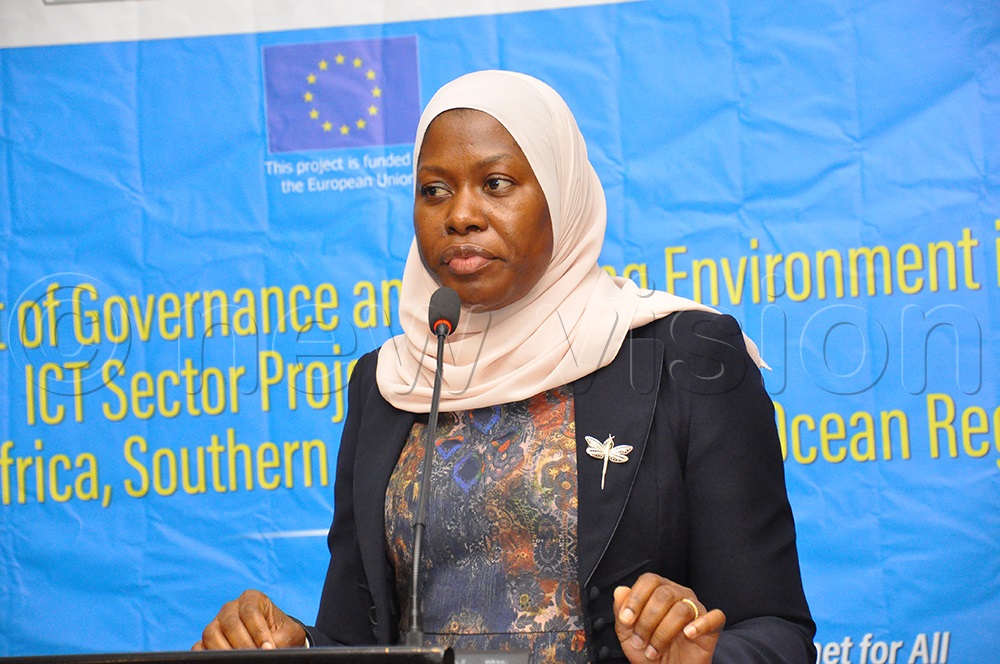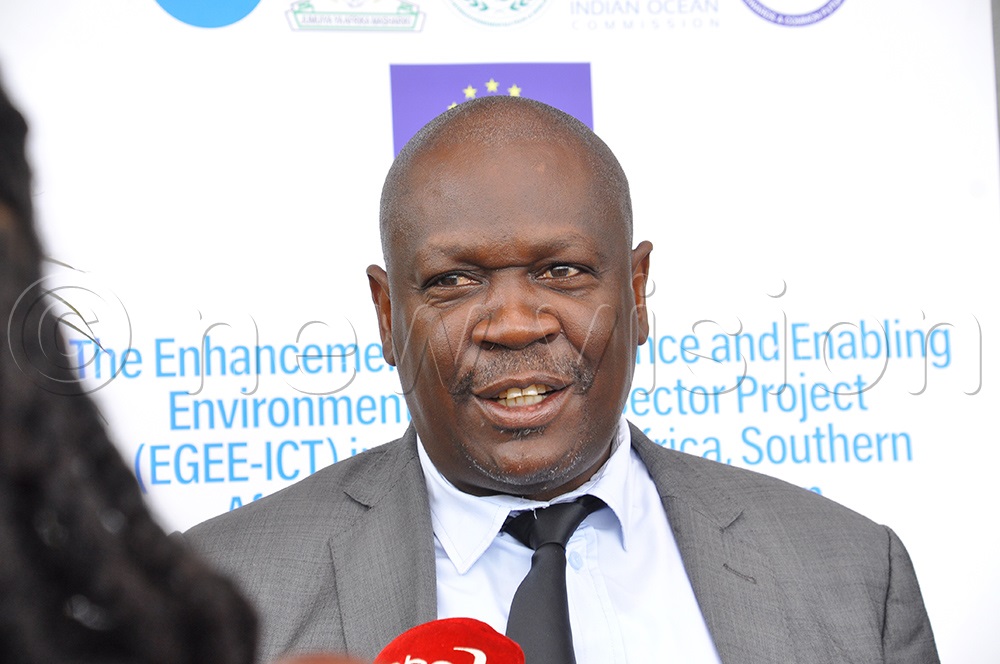COMESA urges bolder steps to tackle e-waste, bridge digital divide
“It is essential that we develop clear regulations on how to manage this waste sustainably, including determining which materials can be reused and which require proper disposal.”
Amina Zawedde, the Permanent Secretary Ministry of ICT, Leonard Chitundu, a telecommunications officer from the COMESA Secretariat in Lusaka, Zambia, and other officials during the validation engagement for policies and regulations for ICT authorisation and E-waste management at Golden Tulip Hotel in Kampala on August 12, 2025. (Credit: Nancy Nanyonga)
KAMPALA - The Common Market for Eastern and Southern Africa (COMESA), a regional economic community, has urged its 21 member states to adopt comprehensive policies for electronic waste (e-waste) management and to expand universal access to ICT services across the region.
This call comes as the ICT sector rapidly expands, generating increasing volumes of e-waste and raising concerns about environmental degradation, including soil contamination.
The appeal was made during a COMESA validation workshop on ICT authorisation policies and e-waste management held Tuesday (August 12) at the Golden Tulip Hotel in Kampala.
“The ICT sector is growing rapidly, and with it comes a significant increase in waste from devices such as handsets and other equipment,” said Leonard Chitundu, a telecommunications officer from the COMESA Secretariat in Lusaka, Zambia.
“It is essential that we develop clear regulations on how to manage this waste sustainably, including determining which materials can be reused and which require proper disposal.”
Chitundu also highlighted the importance of shared responsibility among stakeholders.
He said operators must adopt environmentally sustainable disposal methods, while consumers need to be educated on responsible e-waste handling. “We cannot just discard old phones and devices carelessly."
Amina Zawedde, the Permanent Secretary Ministry of ICT, addressing participants during the validation engagement for policies and regulations for ICT authorisation and E-waste management at Golden Tulip Hotel in Kampala on August 12, 2025. (Credit: Nancy Nanyonga)
Presiding over the opening ceremony, Dr Aminah Zawedde, the permanent secretary of Uganda's ICT and national guidance ministry, echoed these concerns, noting that many institutions in Uganda store outdated computers for years, often until their storage facilities become overwhelmed.
To tackle this, Zawedde revealed that the government, through the Kampala Capital City Authority (KCCA), plans to establish e-waste collection centres.
“We will identify locations to serve as e-waste collection points. From there, we will manage refurbishment and sorting to determine what is reusable and what is not. That is how we can manage waste effectively,” she said.
Globally, e-waste is one of the fastest-growing waste streams, with the United Nations estimating that over 62 million tonnes were generated worldwide in 2022 alone, according to the International Communication Union.
In Africa, where formal recycling systems are limited, refurbishment is increasingly recognised as a practical solution to both the waste problem and the device shortage.
Zawedde said the refurbishment plan aligns with Uganda’s broader digital transformation strategy that aims to ensure no citizen is left behind in the transition to a knowledge-based economy. This initiative forms part of the government’s efforts under the National Development Plan IV (NDP IV), launched this financial year.

Chitundu highlighted the importance of shared responsibility among stakeholders. (Credit: Nancy Nanyonga)
“Just as we use second-hand cars, some technology can also be reused,” she said.
“We can refurbish computers by erasing all stored data and turning them into functional machines for students. A refurbished computer can serve a student for three to five years at a much lower cost than a brand-new one.”
The NDP IV prioritises ICT development as a key driver of national growth, focusing on infrastructure improvements, digital literacy, innovation support, and e-governance. “We are adopting an inclusive approach that addresses access, skills, and sustainability,” said the ICT ministry PS.
She further emphasised the critical role of the private sector and the need for partnerships with technology companies, refurbishing firms, and donor agencies to scale up the initiative.
“We believe that with the right investment, refurbished computers can be a cornerstone in bridging Uganda’s digital divide."
Highlighting affordability challenges, Zawedde noted that many Ugandans cannot afford new devices, creating significant gaps in digital access.
“If we establish refurbishment centres, we will not only make computers more affordable, but also create employment opportunities for our young people,” she said.